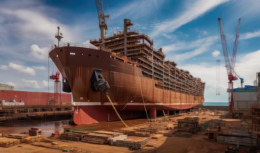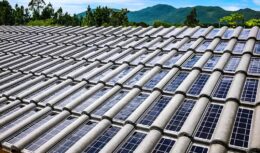
Brazilian oil production stood at 2,9 million barrels per day in 2021. Even delivering less than expected, Brazil has established itself as one of the largest producers in the world
This month, US Secretary of Energy Jennifer Granholm formally asked Brazil for faster increases in oil production, Brazil's Ministry of Energy said. The North American country also contacted producers in Venezuela and the Middle East. Albuquerque told GLOBO that the country is gradually increasing its production. The Ministry of Mines and Energy (MME) estimates a growth of 70% over the next ten years, reaching 5,3 million barrels per day, which will maintain Brazil's status as an exporter.
With the war in Ukraine, a barrel of oil reached around US$ 100, and Brazil once again sees the opportunity to expand its production, to take advantage of the moment when the USA and the European Union decide to reduce dependence on oil from the Russia, which currently accounts for 12% of world supply.
For the former president of the Energy Research Company (EPE) and professor of the Energy Planning Program at Coppe/UFRJ, Maurício Tolmasquim, “Brazil does not have strategic storage”. According to the specialist, only five countries have this capacity: Saudi Arabia, United Arab Emirates, Kuwait, Iraq and Russia, with the potential to offer 1 million to 1,8 million more barrels per day.
Crisis can benefit and expand the production of Petrobras and other companies that extract oil in Brazil
Albuquerque points out that the major oil companies have had a 9% decrease in production over the last three years. According to him, “Brazil increased its production by 14% of oil and 22% of natural gas in the period”.
“That's what I talked about with the secretary. We are already on this path of increasing production. By 2026, 15 oil platforms should start producing, with an average of 200 to 250 barrels per day in each structure,” she said.
Igor Lucena, economist and doctor in International Relations, assesses that, from a structural point of view, the crisis can benefit Brazil. He recalls that, in recent years, Petrobras has been concentrating its operations on exploration, with the plan to sell refineries and with the exit from the distribution segment.
“Now, with a barrel at around US$ 100, and it should continue to do so for the foreseeable future, there is room for Petrobras and other companies that extract oil in Brazil to expand production,” he said.
Energy transition: Brazil grows in the production of green hydrogen, solar and wind energy
Official government planning for 2015 predicted that Brazil would end 2021 producing 4,3 million barrels of oil per day only in areas already contracted. In 2021, with the strong economic crisis, changes in the dynamics of the energy sector and the reduction in the price of commodity compared to the previous decade, Brazilian oil production stood at 2,9 million barrels per day. Even delivering less than expected, the country established itself as one of the largest producers in the world.
The energy transition is highlighted by specialists as an inevitable process. Tolmasquim claims that the crisis will force an acceleration of changes in the sector that will benefit Brazil.
“The transition away from fossil fuels is no longer just an environmental issue, but also a national security issue. Brazil has a very abundant renewable natural resource base and can produce electricity at a very low price,” said Tolmasquim.
For Lucena, Brazil grows in the production of green hydrogen, solar and wind energy. “At the same time, the European Union must suffer sanctions on Russian products, mainly gas, coal, iron ore and oil. This means that there is a possibility of Brazil being an export platform for the European Union of these natural inputs,” he said.













Army summons Brazilians with up to…
Come be a watermelon, you too
Air Force F-16 fighters…
Everything is fine, 100-year secrecy,…
Air Force F-16 fighters…
Well... It's flying scrap... Typical...
Air Force F-16 fighters…
Which genocide are you talking about? Than…
Brazil begins an ambitious journey…
Very poor project with the final station…
Tenho interesse em vaga de motorista de…
Good morning, what do you need to…
Again? After several unfinished works…
I have an AD license, I currently work as a security guard…
Producing non-flexible cars in Brazil is…
Available at any time, just call me
Where are the billions from the bullet train…
Yes